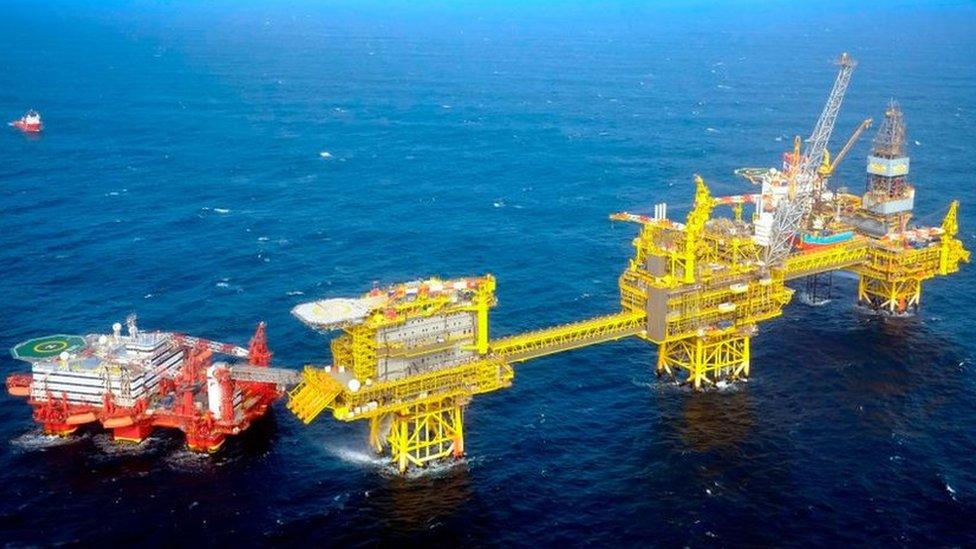Independence fund: spend or save
- Published
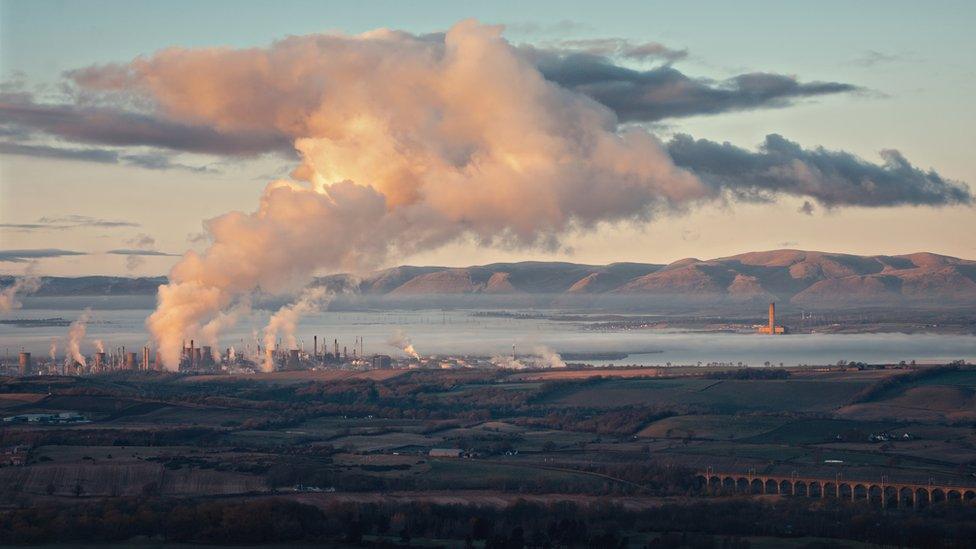
There isn't as much oil and gas being pumped, but the tax revenue has risen again, and the SNP leader has that in her sights.
Such tax is no longer to be used for funding public services, according to the SNP, but it's tempting to earmark it for an expensive list of projects.
The strange new dimension is that tax revenue would fall faster in an independent Scotland: Nicola Sturgeon wants a faster wind-down of production.
"The Building a New Scotland Fund" is the investment account in which Nicola Sturgeon told her party conference that the oil and gas revenues of an independent nation would be planted.
There are several messages in that, some of them buried. The one she went on to explain was that this can grow quite large if oil profits and the tax on them remain at the elevated levels to be found now.
There followed a list of what a fund of "up to £20bn" could help to deliver - insulation for homes and lower energy bills, more affordable homes, local renewable energy projects, enabling communities to buy assets - while helping to kick-start faster economic growth.
What she did not spell out was that those aspirations are very expensive: the most optimistic oil revenue figures don't get close to the roughly estimated £33bn bill for insulating all of Scotland's homes, let alone those other projects. So they could help with that list, but only a bit.
And if it's an investment fund, as with the Scottish National Investment Bank - which is building up £200m of Holyrood funding per year over ten years - then you only get the earnings from your investments, and you might be wise to reinvest at least some of them, not least to protect against inflation.
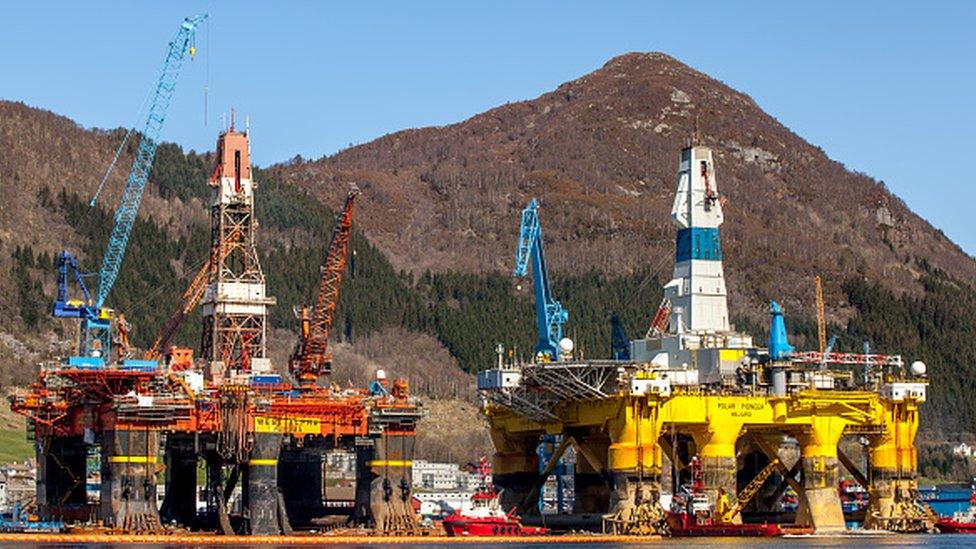
The oil and gas sector forms the backbone of Norway's economy
Norway's oil fund, which has grown humongous over 30 years, is often cited as a model for what an independent Scotland could have in the bank by now.
It grew that large because Oslo's politicians stuck to strict rules about how little could be spent from it, while continuing to set very high personal tax rates to pay for the country's public services.
A further message which was referenced early in her SNP conference speech was that the party wants to see a transition away from oil and gas.
Nicola Sturgeon wants to run down the flow of hydrocarbons because of their impact on climate change, while helping workers in that sector make the shift to renewable energy. That means an independent Scotland would forego some oil and gas tax revenue, and possibly quite a lot.
And of course, treating those oil tax revenues as a windfall concedes; first, that you don't know how much is going to be collected, so you'd be unwise to bank on it: and second, that you cannot also use that revenue to pay for public services, as the SNP aimed to do in its prospectus for independence back in 2014.
That much has been conceded when the party adopted as policy the conclusions of the party's Sustainable Growth Commission. No longer would oil and tax revenue be "baked in" to the funding of public services.
That Growth Commission report remains the basis for the economic case to be set out next Monday in the economic case for independence.
Ahead of then, Ms Sturgeon placed her emphasis on what she wants party members to take from it: a repeal of trade union law and social partnership across employers, unions and government: EU membership: higher minimum wages for those aged up to 23: and "fairer migration".
- Published10 October 2022
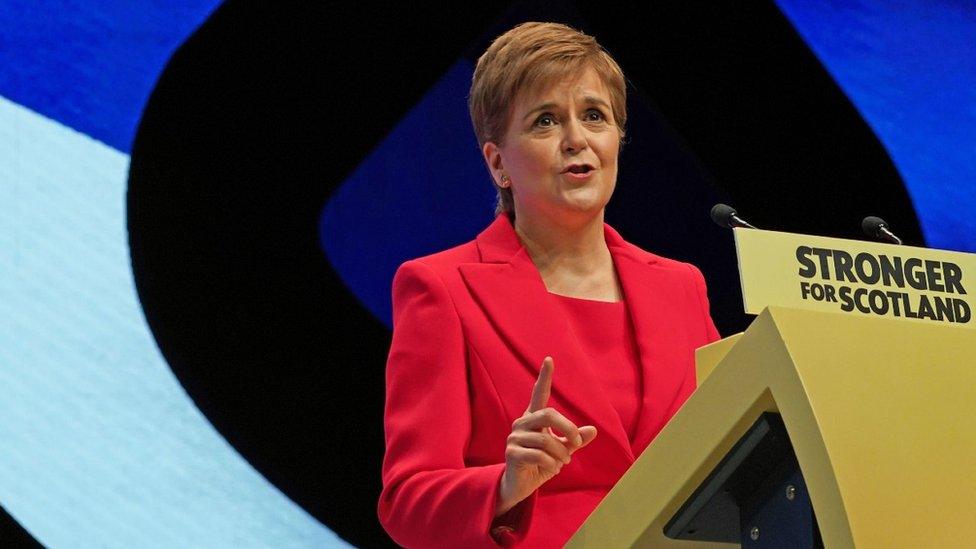
- Published7 October 2022
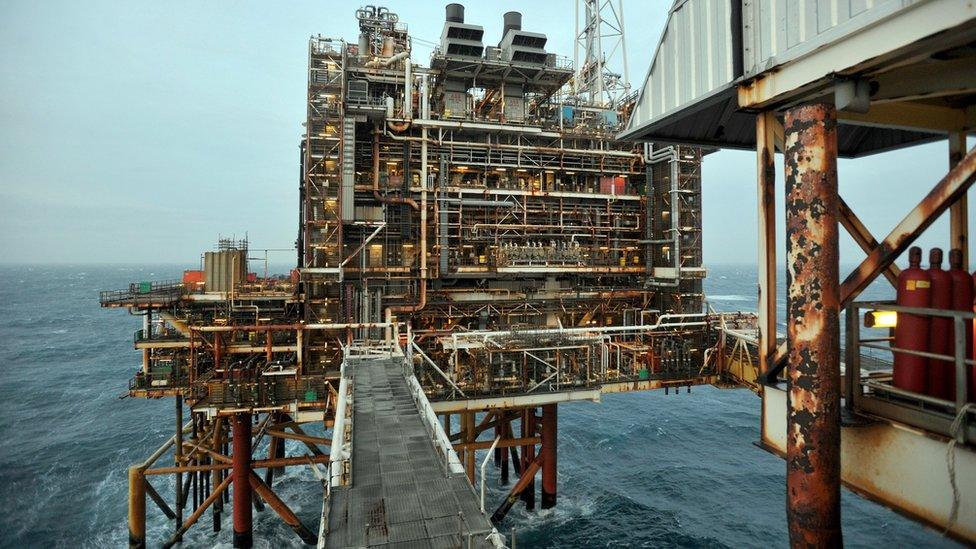
- Published7 October 2022
